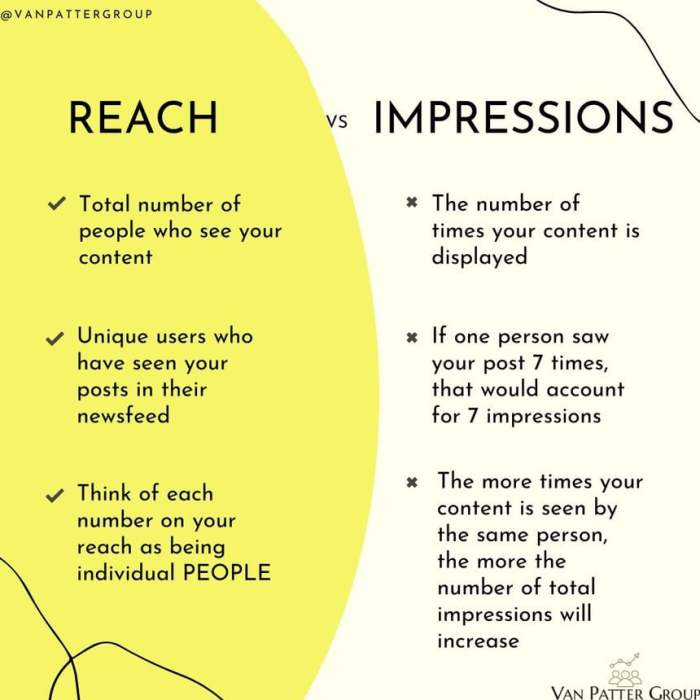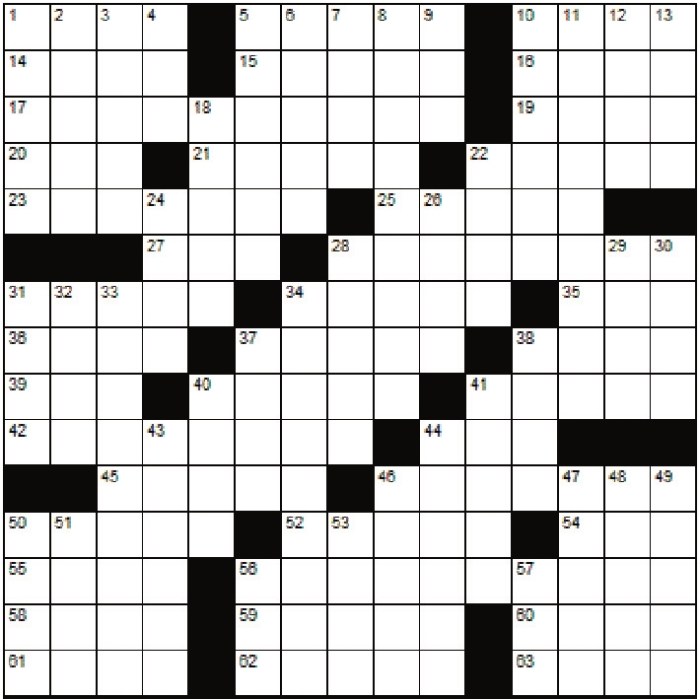Does an Impression of Crossword delves into the fascinating world of crossword puzzles, where words dance and meanings intertwine. This linguistic art form has captured the imagination of countless enthusiasts, challenging their wits and sparking moments of both frustration and triumph.
From its humble origins to its widespread cultural impact, the crossword has evolved into a beloved pastime that transcends generations. Join us as we unravel the secrets of this enigmatic puzzle, examining its history, symbolism, and the social and psychological implications it holds.
Meaning and Definition
The term “impression of crossword” refers to the mental image or representation that is formed when someone sees or thinks about a crossword puzzle. This impression can vary widely depending on the individual’s experiences and associations with crossword puzzles.
Different Interpretations
For some, an impression of crossword may be positive and evoke feelings of enjoyment and satisfaction. They may associate crossword puzzles with relaxation, mental stimulation, and a sense of accomplishment. For others, the impression may be more negative, conjuring up feelings of frustration or boredom.
They may view crossword puzzles as being too difficult or time-consuming.
Ultimately, the impression of crossword is a subjective experience that is influenced by a variety of factors, including the individual’s personality, past experiences, and cultural context.
Doing crossword puzzles can be a fun and challenging way to exercise your brain. If you’re stuck on a clue, such as “lunes or martes crossword clue”, you can find the answer here . Whether you’re a seasoned crossword solver or just starting out, there are plenty of resources available to help you along the way.
Origins and History

The term “impression of crossword” emerged in the early 20th century as a descriptor for the mental image or impression that a crossword puzzle solver forms while attempting to complete the puzzle.
The development of crossword puzzles, which originated in the early 1900s, played a significant role in shaping the concept of “impression of crossword.” As crossword puzzles gained popularity, solvers began to share their experiences and insights, leading to the recognition of the unique cognitive processes involved in solving these puzzles.
Historical Influences
- The rise of print media:The widespread availability of newspapers and magazines in the early 20th century provided a platform for the publication of crossword puzzles, making them accessible to a large audience.
- The popularity of word games:Crossword puzzles emerged alongside other word games like anagrams and word searches, tapping into a growing interest in linguistic challenges and mental stimulation.
- The development of puzzle solving techniques:As crossword puzzles became more complex, solvers developed strategies and techniques to tackle them, contributing to the collective understanding of the mental processes involved.
Cultural Impact
The “impression of crossword” has a profound cultural significance, permeating popular culture, language, and society.
It has become an intrinsic part of our collective consciousness, shaping the way we think, communicate, and interact with the world around us.
Impact on Popular Culture
- Crosswords have been featured in countless films, television shows, and other forms of popular media, showcasing their widespread appeal and cultural relevance.
- The “crossword puzzle” has become a ubiquitous symbol of intellectualism and mental agility, often used as a plot device or character trait in fiction.
- Crossword-themed games, apps, and online communities have proliferated, further solidifying the puzzle’s place in popular culture.
Contemporary Usage

The term “impression of crossword” is frequently used in contemporary contexts to describe the overall perception or understanding of a crossword puzzle.
Contexts of Usage
It is commonly employed in the following situations:
- Puzzle Discussion:When discussing the difficulty, enjoyment, or overall quality of a crossword puzzle, people often use the term “impression of crossword” to convey their general experience.
- Puzzle Creation:Crossword constructors may refer to the “impression of crossword” they aim to create, considering factors such as theme, wordplay, and overall difficulty.
- Crossword Solving Strategies:Experienced crossword solvers may share their “impression of crossword” to provide tips or insights on solving techniques, pattern recognition, and deductive reasoning.
Related Concepts

The concept of “impression of crossword” is closely intertwined with several related terms and ideas. Understanding these connections provides a more comprehensive perspective on the topic.
One such concept is “crossword puzzle.” A crossword puzzle is a word game that typically consists of a grid of black and white squares. The goal is to fill the white squares with letters to form words that satisfy the clues given for each row and column.
Impression of crossword refers to the mental process involved in solving a crossword puzzle.
Another related concept is “problem-solving.” Solving a crossword puzzle requires the application of various problem-solving skills, such as logical reasoning, pattern recognition, and vocabulary knowledge. The impression of crossword can be seen as a manifestation of these problem-solving abilities.
Additionally, the concept of “mental exercise” is relevant to the impression of crossword. Completing a crossword puzzle can be a stimulating mental activity that helps improve cognitive function and keep the mind sharp. The impression of crossword can be seen as a reflection of the cognitive benefits associated with this type of mental exercise.
Symbolism and Interpretation

The term “impression of crossword” carries several symbolic meanings and can be interpreted in various ways. It can represent:
Intellectual Challenge
Crosswords are renowned for their intellectual challenge, requiring solvers to exercise their cognitive abilities. Thus, the “impression of crossword” symbolizes the pursuit of knowledge, problem-solving, and mental stimulation.
Entertainment and Recreation
Crosswords are also a popular form of entertainment and recreation. The “impression of crossword” evokes feelings of leisure, enjoyment, and relaxation, providing a temporary escape from daily life.
Communication and Connection
Crosswords can facilitate communication and connection between people. Sharing the experience of solving crosswords, discussing clues, or collaborating on puzzles fosters a sense of community and intellectual companionship.
Personal Growth, Does an impression of crossword
The process of solving crosswords can contribute to personal growth. It encourages perseverance, patience, and the ability to think outside the box. By tackling challenging clues, individuals can expand their vocabulary, enhance their problem-solving skills, and gain a sense of accomplishment.
Literary and Artistic Expressions
The “impression of crossword” has found its way into various forms of creative expression, including literature and art.
In literature, authors have used the crossword puzzle as a metaphor or plot device. For example, in David Mitchell’s novel “Cloud Atlas,” a crossword puzzle serves as a recurring motif that connects the stories of different characters across centuries.
Art
In art, the crossword puzzle has been depicted as a symbol of intellectual challenge and wordplay. Artists such as Salvador Dalí and M.C. Escher have incorporated crossword puzzles into their works.
Dalí’s painting “The Dream” (1931) features a crossword puzzle floating in the sky, while Escher’s print “Drawing Hands” (1948) depicts two hands drawing a crossword puzzle, creating an illusion of infinity.
Social and Psychological Implications
The impression of a crossword puzzle extends beyond its recreational nature. It holds significant social and psychological implications that influence human behavior, emotions, and relationships.
Cognitive Stimulation and Brain Health
- Crosswords engage multiple cognitive functions, including memory, problem-solving, and language processing.
- Regularly solving crosswords can improve cognitive abilities, reduce age-related cognitive decline, and even lower the risk of developing dementia.
Stress Relief and Relaxation
- The act of solving a crossword can provide a sense of relaxation and stress relief.
- It allows individuals to focus on the present moment and escape from daily worries, promoting mental well-being.
Social Connections and Community
- Crosswords can foster social connections through shared experiences and discussions.
- Crossword clubs, online forums, and social media groups provide platforms for individuals to connect with others who share their passion for puzzles.
Educational Value
- Crosswords expand vocabulary, enhance general knowledge, and promote lifelong learning.
- Solving crosswords exposes individuals to new words, concepts, and historical facts, broadening their intellectual horizons.
Sense of Accomplishment and Self-Esteem
- Completing a crossword puzzle can provide a sense of accomplishment and boost self-esteem.
- Solving challenging puzzles can enhance feelings of competence and personal growth.
Global Perspectives
The impression of crossword varies across different cultures and regions, influenced by cultural values, linguistic nuances, and historical contexts. In some cultures, crosswords are perceived as a challenging intellectual pastime, while in others, they may be seen as a form of entertainment or leisure activity.
Western Perspective
In Western cultures, crosswords are often associated with intelligence, problem-solving skills, and verbal dexterity. They are popular in newspapers, magazines, and online platforms, and are often seen as a way to exercise the mind and improve vocabulary.
Eastern Perspective
In Eastern cultures, such as China and Japan, crosswords may be viewed differently. In China, crosswords are known as “shuduku” and are considered a form of logical puzzle. They are often used as a way to develop logical thinking and spatial reasoning skills.
Cross-Cultural Impact
In recent years, there has been a growing cross-cultural exchange of crossword puzzles. Crosswords from different cultures are being translated and adapted to appeal to a wider audience. This has led to a greater appreciation of the diversity of crossword styles and has helped to promote cultural understanding.
Future Directions
The future of “impression of crossword” holds exciting possibilities and potential developments.
One anticipated change is the integration of technology into the crossword experience. Digital crosswords may become more prevalent, offering interactive features, personalized puzzles, and enhanced accessibility.
Crossword Variants and Innovations
The traditional crossword format may evolve, with new variations and innovations emerging. These could include themed crosswords, puzzles with non-traditional grid shapes, or even crosswords that incorporate multimedia elements.
Cultural Impact and Social Relevance
Crosswords may continue to play a significant role in popular culture. They could be used as educational tools, promote cognitive health, and foster social connections through online or community-based crossword events.
Global Perspectives and Cross-Cultural Exchange
As the world becomes increasingly interconnected, crosswords may become a medium for cross-cultural exchange. Crosswords could be translated into different languages, showcasing cultural nuances and fostering understanding among diverse populations.
Questions Often Asked: Does An Impression Of Crossword
What is the origin of the crossword puzzle?
The first crossword puzzle was created by Arthur Wynne, a journalist for the New York World, and published in 1913.
What is the most common grid size for a crossword puzzle?
The most common grid size is 15×15, but puzzles can range in size from 5×5 to 25×25 or larger.
What is the difference between a crossword and a cryptic crossword?
A cryptic crossword is a more challenging type of crossword puzzle where the clues are often ambiguous or misleading.